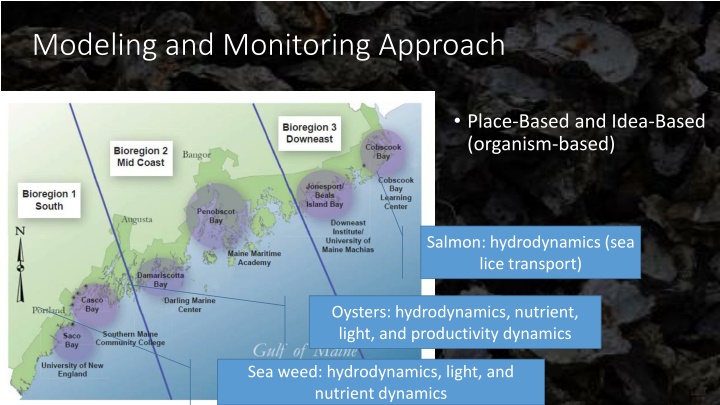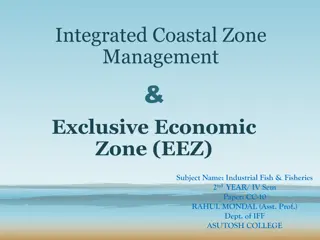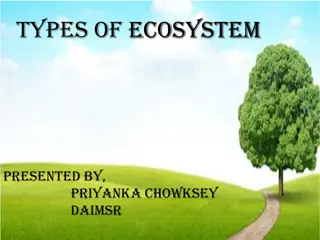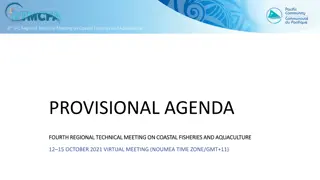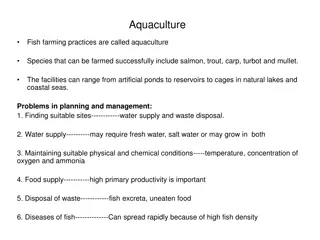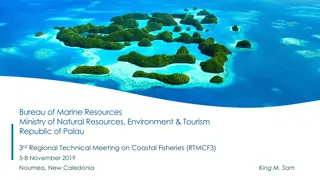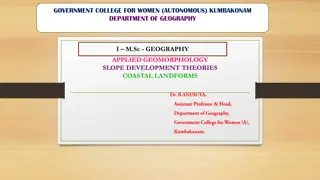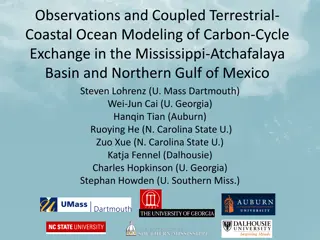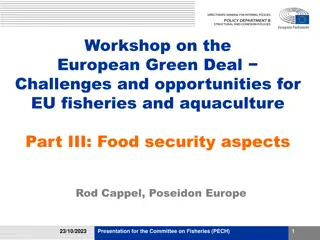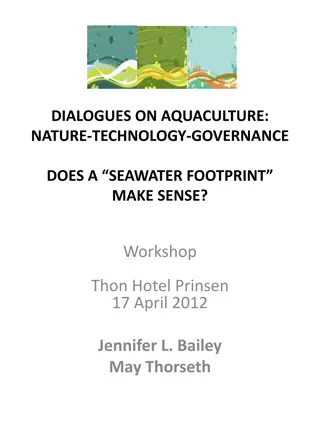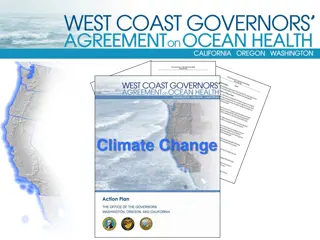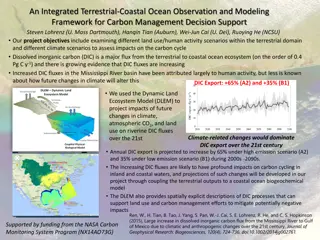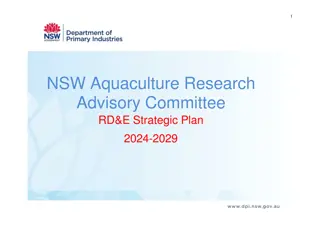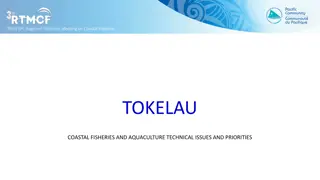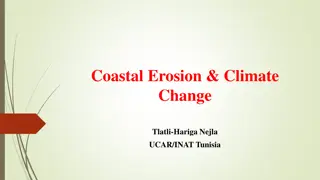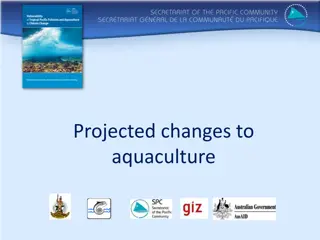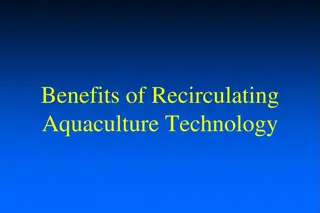Aquaculture Modeling and Monitoring Approach in Coastal Ecosystems
This comprehensive modeling and monitoring approach focuses on understanding hydrodynamics, nutrient dynamics, and productivity in various organisms like salmon, oysters, and sea weed. Through data compilation, stakeholder involvement, and site selection informed by aquaculture, the project aims to enhance modeling capacity and monitor changing environmental conditions in coastal regions.
Download Presentation

Please find below an Image/Link to download the presentation.
The content on the website is provided AS IS for your information and personal use only. It may not be sold, licensed, or shared on other websites without obtaining consent from the author.If you encounter any issues during the download, it is possible that the publisher has removed the file from their server.
You are allowed to download the files provided on this website for personal or commercial use, subject to the condition that they are used lawfully. All files are the property of their respective owners.
The content on the website is provided AS IS for your information and personal use only. It may not be sold, licensed, or shared on other websites without obtaining consent from the author.
E N D
Presentation Transcript
Modeling and Monitoring Approach Place-Based and Idea-Based (organism-based) Salmon: hydrodynamics (sea lice transport) Oysters: hydrodynamics, nutrient, light, and productivity dynamics Sea weed: hydrodynamics, light, and nutrient dynamics
Theme 1: Growing Areas What do we want to know and what do we want to model? Newell, Brady, and Mayer
Compile Existing Data with the help of Stakeholders Roessler (Bowdoin) 2017
Aquaculture will inform site selection
Damariscotta Sampling along the Estuarine Gradient Growing Area Darling Center Boothbay
Building Modeling Capacity INTEGRATION COBSCOOK CASCO and SACO Hydrodynamics Waves Biogeochemical Aquaculture Productivity Ecosystem 5 of 6 Regions with Existing Common Hydrodynamic Model Framework! (Xue)
The times (and estuaries) are a changin Bernie McAlice took temperature (and other measurements) from the Darling Marine Center dock for approximately 10 years (1967-1977) Mary Jane Perry (current Director) has been collecting CHL and temperature for the last 14 years
Lake Ice Out Dates in the Damariscotta River April 10th
Spring Spring Bloom?
Bigger Fall Blooms
